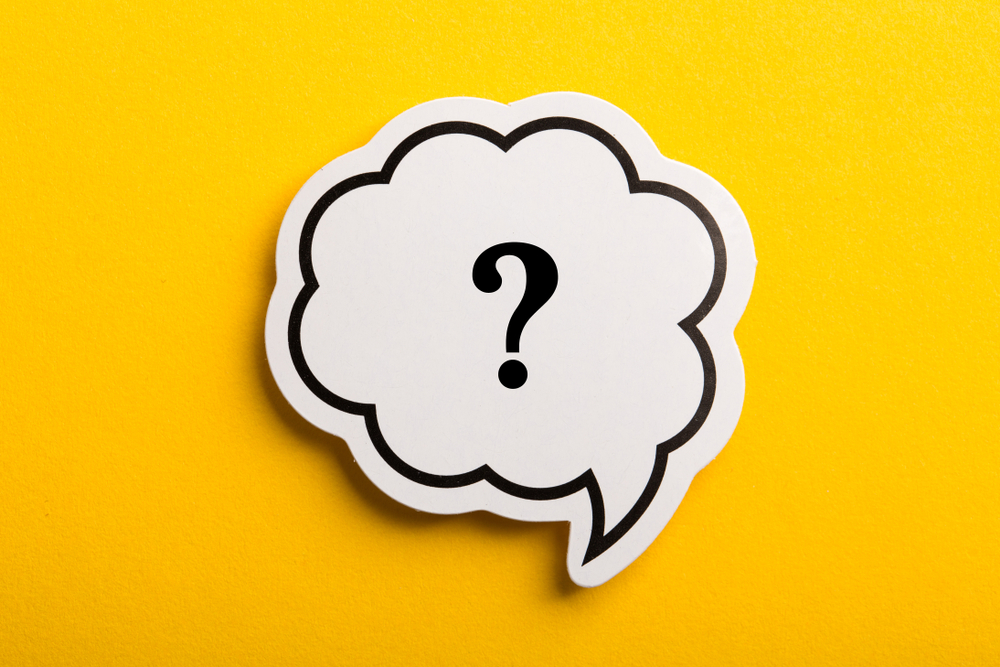
By
Last updated:
February 22, 2023
Just because something’s “easy” doesn’t mean you should forget about it!
Whatever your reason for learning Spanish, you’ll always depend on the simple basics of the language.
When you fully grasp easy Spanish words and phrases, you can navigate everyday conversations, respond to questions appropriately and express crucial needs without trouble.
Let’s check out the essentials!
Contents
- Greetings and Introductions in Spanish
- Polite Expressions in Spanish
- Basic Everyday Words in Spanish
- Helpful Adjectives in Spanish
-
- Useful description words
- Basic colors
- Numbers from one to ten
- Question Words in Spanish
Download:
This blog post is available as a convenient and portable PDF that you
can take anywhere.
Click here to get a copy. (Download)
Greetings and Introductions in Spanish
Regardless of your motivation for learning Spanish, you’ll want to be able to greet others and introduce yourself. Spanish is pretty straightforward when it comes to meeting and greeting.
Also, while it’s important to memorize basic vocab, it’s super important to be mindful of your Spanish pronunciation, so make sure you practice these out loud!
- Hola. (Hello.)
- Buenos días. (Good morning.)
- Buenas tardes. (Good afternoon.)
- Buenas noches. (Good evening.)
- Me llamo… (My name is…)
- Estoy… (I am…)
- Feliz (Happy)
- Triste (Sad)
- ¿Cómo estás? (How are you?)
- Adiós. (Goodbye.)
Utilizing these greetings is a snap. When you approach someone, smile and say ¡Hola! (Hello!) to get the conversation going.
Polite Expressions in Spanish
In a restaurant, shop or anywhere that requires you to express a preference, you’ll want to remember these phrases.
The first three are mandatory in any language. Fortunately, they’re very memorable in Spanish—you probably already have them in your skill set!
- Por favor. (Please.)
- Gracias. (Thank you.)
- ¡De nada! (You’re welcome!)
Shopping or dining? Let the staff or vendor know precisely what you like and don’t like.
- Yo quiero… (I want…)
- Me gusta… (I like…)
- No me gusta… (I don’t like…)
These may come in handy as well.
- ¡Estoy de acuerdo! (I agree!)
- Lo siento. (I’m sorry.)
Basic Everyday Words in Spanish
Learning the names of items that impact your day-to-day life is an ideal way to build your core Spanish vocabulary.
A few of these might take you back to your childhood learning days.
- El perro (Dog)
- El gato (Cat)
- La casa (House)
- El coche (Car)
- El árbol (Tree)
- La flor (Flower)
- La comida (Food)
Notice that the use of masculine and feminine articles changes based on the noun it precedes.
Every Spanish noun is either singular or plural and masculine or feminine, and the Spanish article used to identify the noun corresponds to that.
El (the) and un (a/an) cover masculine, singular nouns. Los (those) and unos (some) cover masculine, plural nouns.
La (the) and una (a/an) apply to feminine, singular nouns. Las (those) and unas (some) apply to feminine, plural nouns.
Let’s see some of these articles and basic words in action!
Yo quiero un perro. (I want a dog.)
Yo quiero una casa. (I want a house.)
Yo quiero comida, por favor. (I want food, please.)
Me gusta el coche. (I like the car.)
No me gusta el árbol. (I don’t like the tree.)
Helpful Adjectives in Spanish
When using adjectives to describe nouns, remember that word order is important. It seems tricky at first but, trust me, you won’t have any trouble with this rule if you just focus on getting the noun into play before describing it!
Useful description words
Just a few adjectives can definitely liven up your speaking and listening skills!
In Spanish, adjectives typically follow the nouns they describe. Here, too, you’ll need to be mindful of quantity and gender pairing.
- Grande (Big)
- Pequeña (Small)
- Caliente (Hot)
- Frío (Cold)
- Mojado (Wet)
- Seco (Dry)
- Izquierda (Left)
- Derecha (Right)
Here are some sentences combining adjectives and nouns.
El perro grande (The big dog)
Dos coches pequeños (Two small cars)
Basic colors
Being able to point out a certain color when you’re shopping, or even just wandering through a museum or park, is beneficial.
- Rojo (Red)
- Rosa (Pink)
- Naranja (Orange)
- Amarillo (Yellow)
- Verde (Green)
- Azul (Blue)
- Marrón (Brown)
- Negro (Black)
- Blanco (White)
Here are some example sentences using these words.
La casa rosa (The pink house)
Las casas rosadas (The pink houses)
El perro marrón (The brown dog)
Los perros marrones (The brown dogs)
Numbers from one to ten
Pulling some basic numbers into your vocabulary can pay off. Use them when you’re writing down a new friend’s phone number, to locate addresses and much more.
- Uno (One)
- Dos (Two)
- Tres (Three)
- Cuatro (Four)
- Cinco (Five)
- Seis (Six)
- Siete (Seven)
- Ocho (Eight)
- Nueve (Nine)
- Diez (Ten)
Question Words in Spanish
Believe it or not, some of the easiest Spanish words to learn are those that ask questions. These words are sometimes referred to as “interrogative” words because their function is to gather information.
- ¿Qué…? (What?)
- ¿Quién…? (Who?)
- ¿Cuándo…? (When?)
- ¿Dónde…? (Where?)
- ¿Por qué…? (Why?)
- ¿Qué es? (What is it?)
- ¿Quién eres tú? (Who are you?)
Let’s have a look at a few example sentences using these words.
¿Cuándo llega el coche? (When does the car arrive?)
¿Dónde está el gato blanco? (Where is the white cat?)
¿Porque el cielo es azul? (Why is the sky blue?)
If you’d like to get more consistent vocabulary practice, FluentU is a solid option. You’ll be able to learn vocabulary words in the context of authentic videos intended for native Spanish speakers.
You can instantly look up the definition of any word you encounter with interactive subtitles. And then you can commit these words to memory with personalized word lists and multimedia flashcards.
There are even iOS and Android apps to take your learning on the go.
Speaking Spanish opens up so many exciting opportunities, so nail down the basics and take full advantage of the adventures awaiting you.
Good luck—and have fun!
Download:
This blog post is available as a convenient and portable PDF that you
can take anywhere.
Click here to get a copy. (Download)
Have you decided to learn Spanish? Congratulations! It will be a very exciting and rewarding journey.
However, as you set out to learn this new language, you might not know where to begin. The sheer number of Spanish vocabulary words you have to learn can be overwhelming!
Keep in mind that you don’t need to rush into lessons that are above your level. It’s better to start from the basics and build a foundation that will help you reach your desired level of proficiency in Spanish!
To give you a boost, SpanishPod101 has compiled this guide to basic Spanish words for beginners. We’ve listed over 200 common Spanish words in different categories, providing additional information where necessary.
Have fun!
You’re one step closer to your first conversation in Spanish!
Table of Contents
- Pronouns
- Articles
- Numbers
- Nouns
- Verbs
- Adjectives
- Conjunctions
- Prepositions
- Final Thoughts
1. Pronouns
Pronouns are some of the most important basic Spanish words for beginners. You’ll use them often in regular conversations!
However, when you start learning Spanish, you might be overwhelmed by how complex the pronoun system is. Don’t worry! We’ll start with the basics.
1 – Personal Subject Pronouns
Personal subject pronouns replace the subject of a sentence. You can use them to talk about a previously mentioned noun, whether it’s a person, an animal, or an object. In addition, you can use them to talk about yourself or to address other people.
- Yo hablo español. → “I speak Spanish.”
- Vosotros habláis inglés. → “You speak English.”
| Person | Spanish | English |
| 1st person sg. | yo | I |
| 2nd person sg. | tú | you |
| 3rd person sg. | él, ella | he, she |
| 1st person pl. | nosotros | we |
| 2nd person pl. | vosotros | you |
| 3rd person pl. | ellos, ellas | they |
You might be surprised to learn that most native speakers won’t use personal subject pronouns to begin a sentence. The subject is often omitted unless it’s not obvious who or what we’re talking about.
- Hablo español. → “(I) speak Spanish.”
- Habláis inglés. → “(You) speak English.”
Apart from subject pronouns, other personal pronouns include direct object pronouns, indirect object pronouns, and prepositional pronouns. In Spanish, personal pronouns change form depending on their function and position in the sentence. Want to learn more? Check out SpanishPod101’s lesson on personal pronouns.
2 – Demonstrative Pronouns
Demonstrative pronouns in Spanish (such as ese, este, and aquel) are quite easy for English speakers to grasp, as they work similarly to their English equivalents. You can use them to identify a person, an animal, or a thing, as well as its distance from you. These are some of the basic beginner Spanish words you need to learn early on!
In English, there are only four demonstrative pronouns: this and that and their plural forms these and those. However, in Spanish, there are fifteen! Why is that?
First of all, Spanish demonstrative pronouns correspond to the three different adverbs used to express distance: aquí (“here”), allá (“there”), and ahí (expresses something between here and there).
- Este de aquí es mi perro. → “This is my dog.”
- Esos de ahí son mis amigos. → “Those are my friends.”
- Aquel de allá es mi coche. → “That is my school.”
The other main difference between Spanish and English demonstrative pronouns is the gender distinction, which applies to both singular and plural pronouns. Spanish has different forms for masculine, feminine, and neuter gender.
| Person | Spanish | English | |||||
| aquí | ahí | allí | here | – | there | ||
| masculine | sg. | este | ese | aquel | this | – | that |
| pl. | estos | esos | aquellos | these | – | those | |
| feminine | sg. | esta | esa | aquella | this | – | that |
| pl. | estas | esas | aquellas | these | – | those | |
| neuter | esto | eso | aquello | this | – | that |
3 – Interrogative Pronouns
Interrogative pronouns are crucial in any language, making them some of the most important Spanish words for beginners to learn. Asking is the best way to learn, after all!
And here’s some good news: They’re very easy for English speakers to learn, as they work just like their English equivalents!
- Qué → “What”
¿Qué quieres comer? → “What do you want to eat?”
- Cuál → “Which”
¿Cuál de ellos es tu hijo? → “Which one is your son?”
- Por qué → “Why”
¿Por qué dejaste tu trabajo? → “Why did you quit your job?”
- Quién → “Who”
¿Quién vas a invitar a tu cumpleaños? → “Who will you invite to your birthday?”
- Dónde → “Where”
¿Dónde vas a ir de vacaciones? → “Where will you go on your vacation?”
- Cuánto → “How much”
¿Cuánto pagaste por esta chaqueta? → “How much did you pay for this jacket?”
- Cuántos / Cuántas → “How many”
¿Cuántos días te vas a quedar? → “How many days will you stay?”
¿Cuántas manzanas quieres comprar? → “How many apples do you want to buy?”
- Cuándo → “When”
¿Cuándo vas a tener el bebé? → “When will you have the baby?”
Of course, it will be helpful to learn a few full questions by heart if you’re planning to visit Spain or have a conversation with a Spanish speaker. Fortunately, SpanishPod101 always has your back! Check out the Top 15 Questions You Should Know for Conversations.
¿Cuándo vas a tener el bebé? (“When will you have the baby?”)
2. Articles
One of the most characteristic aspects of the Spanish language is its articles. Studying these basic Spanish words for beginners is key to starting your learning journey off on the right foot.
Articles accompany nouns and can be definite (like the English word “the”) or indefinite (like the English words “a” and “an”).
- El vaso → “The glass”
- Un vaso → “A glass”
In Spanish, however, they also indicate gender and number. This is why there are more articles to learn than there are in English.
| Person | Definite article | Indefinite article | |
| masculine | sg. | el | un |
| pl. | los | unos | |
| feminine | sg. | la | una |
| pl. | los | unas |
- → Struggling with the Spanish gender rules? Thanks to our lesson Using the Right Gender and Number of Spanish Nouns, understanding the basics has never been easier!
There is also the neuter article lo, which goes before adjectives, participles, and ordinal numbers that are not followed by a noun.
- Lo mejor → “The best”
- Lo hablado → “What was said”
- Lo primero → “The first”
3. Numbers
When you start learning a language, you definitely have to learn how to count in it!
Let’s see the cardinal Spanish numbers from one to ten:
- Uno → “One”
- Dos → “Two”
- Tres → “Three”
- Cuatro → “Four”
- Cinco → “Five”
- Seis → “Six”
- Siete → “Seven”
- Ocho → “Eight”
- Nueve → “Nine”
- Diez → “Ten”
And here are the ordinal Spanish numbers from one to ten:
- Primero → “First”
- Segundo → “Second”
- Tercero → “Third”
- Cuarto → “Fourth”
- Quinto → “Fifth”
- Sexto → “Sixth”
- Séptimo → “Seventh”
- Octavo → “Eighth”
- Noveno → “Ninth”
- Décimo → “Tenth”
Once you’ve mastered counting from one to ten, check out SpanishPod101’s lessons on numbers to learn how to count to infinity!
4. Nouns
Nouns identify a person, animal, place, thing, or idea. Spanish nouns can be singular or plural, and each one has a grammatical gender.
Below is a list of nouns you can use in your daily life, whether your back hurts, you’re looking for the post office, or you’re preparing a tasty meal. These basic beginner Spanish words can help you communicate general ideas even before you learn how to form sentences, so remember as many as you can!
- → Don’t forget to check out our article The 100 Most Common Spanish Nouns, where you’ll learn how to use singular, plural, and different-gendered nouns!
1 – Body Parts
| cuerpo | body |
| cabeza | head |
| cara | face |
| ojos | eyes |
| nariz | nose |
| boca | mouth |
| orejas | ears |
| pelo | hair |
| mejillas | cheeks |
| cuello | neck |
| nuca | back of the neck |
| hombros | shoulders |
| brazos | arms |
| manos | hands |
| Dedos | fingers |
| uñas | nails |
| pecho / pechos | chest / breasts |
| These are some tricky words! Pechos is plural for pecho (“chest”), but it actually refers to “breasts.” |
| barriga | belly |
| espalda | back |
| cadera | hip |
| muslos | thigh |
| piernas | legs |
| pies | feet |
2 – Family
| familia | family |
| madre (Mamá) | mother (Mom) |
| padre (Papá) | father (Dad) |
| hijo / hija | son / daughter |
| hermano / hermana | brother / sister |
| abuelo / abuela | grandfather / grandmother |
| tío / tía | uncle / aunt |
| sobrino / sobrina | nephew / niece |
| primo / prima | cousin |
¡Una familia unida! (“A united family!”)
3 – Occupations
| maestro / maestra | teacher |
| profesor / profesora | professor |
| policía | policeman / policewoman |
| médico / doctor / doctora | doctor |
In Spanish, médico and doctor are used often equally. However, the phrase “to go to the doctor” is often said as “ir al médico” and, when you address the doctor directly you’ll refer to him or her as “doctor” or “doctora“, sometimes followed by his or her surname.
|
| enfermero / enfermera | nurse |
| abogado / abogada | lawyer |
| cocinero / cocinera | cook |
| camarero / camarera | waiter / waitress |
| empresario / empresaria | businessman / businesswoman |
| oficinista | office worker |
4 – Places Around Town
| hospital | hospital |
| mercado / supermercado | market / supermarket |
| escuela | school |
| museo | museum |
| oficina de correos | post office |
| universidad | university |
| comisaría | police station |
| estación de tren | train station |
| aeropuerto | airport |
| centro (de la ciudad) | city center / downtown |
In Spanish cities and towns, it’s common to refer to the old and central areas as el centro. It’s usually where there are the most tourist attractions and where rent is most expensive.
|
| afueras (de la ciudad) | outskirts |
Contrary to the concept of el centro, there is the concept of las afueras, which refers to the areas of a town or city that are farther away from the urban core.
|
5 – School and Office Essentials
| lápiz | pencil |
| rotulador | marker |
| bolígrafo | pen |
| You’ll rarely hear a student say the word bolígrafo. The diminutive boli is much more commonly used. |
| ordenador | computer |
| (ordenador) portátil | laptop |
To say “the laptop,” most Spanish speakers will say el portátil, but some may say ordenador too. Nowadays, laptops are more popular than traditional computers, so some people specify ordenador de sobremesa (literally, “on-desk computer”).
|
| libreta | notebook |
| folio | piece of paper |
| carpeta | folder |
| goma de borrar | eraser |
| marcador | highlighter |
| clip | paperclip |
| pizarra | blackboard / whiteboard / chalkboard / greenboard |
| pupitre | desk |
| This word is used to talk specifically about school desks. |
| mochila | backpack |
Lista para la escuela (“Ready for school”)
6 – Food
| verduras | vegetables |
| tomate | tomato |
| lechuga | lettuce |
| pimiento | pepper |
| berenjena | eggplant |
| patata | potato |
| alcachofa | artichoke |
| fruta | fruit |
| manzana | apple |
| pera | pear |
| plátano | banana |
| cerezas | cherries |
| sandía | watermelon |
| melón | melon |
| carne | meat |
| pescado | fish |
| leche | milk |
| queso | cheese |
| huevos | eggs |
| harina | flour |
| sal | salt |
| azúcar | sugar |
| aceite | oil |
| mantequilla | butter |
- → If you want to expand your vocabulary with even more essential nouns, you can start by reading SpanishPod101’s article on untranslatable Spanish words!
5. Verbs
Verbs are some of the most common and basic beginner Spanish words. Why is that? Because verbs are used to describe every action in our lives!
Here’s a list with over 50 verbs that will prove useful when you’re starting to speak Spanish. Did you know that in Spanish there are four different verbs that mean “to eat”? Keep reading!
- → At SpanishPod101.com, you can find free vocabulary lists to keep on learning!
1 – Basic Auxiliary Verbs
| haber | to have |
| ser | to be |
| estar | to be |
The verbs ser and estar both translate to the English verb “to be,” but they serve different functions.
Ser is used for permanent or lasting attributes, occupations, characteristics, origins, and relationships. It’s also used to give the time.
- Marta es una buena persona. → “Marta is a good person.”
- Son las dos de la tarde. → “It is two in the afternoon.”
On the other hand, estar is used for positions, locations, actions, conditions, and emotions:
- La ciudad de Moscú está en Rusia. → “The city of Moscow is in Russia.”
- Estoy haciendo la compra. → “I’m doing the grocery shopping.”
These auxiliary verbs are some of the most important Spanish words for beginners to learn. They’re used with main verbs to express the tense or to explain the way in which the verb is understood.
- He fregado los platos. → “I’m doing the dishes.”
- Estoy haciendo la compra. → “I’m doing the shopping.”
- La presidenta fue elegida por sus conciudadanos. → “The president was chosen by her fellow citizens.”
2 – Most Common Verbs
| tener | to have |
| Don’t mix up tener with haber!
Tener means “to have” in the sense of “to possess.” |
| hacer | to do / to make |
| poder | can |
| decir | to say |
| ir | to go |
3 – The Five Senses
| ver / mirar | to see / to watch |
| escuchar / oir | to hear / to listen |
| oler | to smell |
| degustar | to taste |
| tocar | to touch |
¿Qué ven esos ojos? (“What do those eyes see?”)
4 – Basic Actions
| caminar | to walk |
| correr | to run |
| hablar | to talk |
| decir | to say |
| contar | to tell |
| llamar | to call |
| escribir | to write |
| leer | to read |
| dar | to give |
| venir | to come |
| llegar | to arrive |
| marcharse | to leave |
| poner | to put |
| dejar | to leave / to put |
| Dejar is used in the sense of “leaving something” in a specific place. |
| quitar | to remove |
5 – Thoughts and Feelings
| saber | to know |
| conocer | to know |
| Both conocer and saber translate to the English verb “to know.” However, they’re used in very different situations.
Saber is used when the speaker knows a fact, piece of information, or how to do something. Conocer, on the other hand, is used when the speaker knows a person, place, or thing.
|
| sentir | to feel |
| querer / amar | to love |
| recordar | to remember |
| añorar | to miss |
| necesitar | to need |
| soñar | to dream |
| sufrir | to suffer |
| llorar | to cry |
| reir | to laugh |
6 – Daily Routine
| despertarse | to wake up |
| levantarse | to get up |
| ducharse | to shower |
| desayunar | to eat breakfast |
| almorzar | to eat lunch or second breakfast |
| comer | to eat (lunch) |
| cenar | to eat dinner |
| Spanish speakers use different verbs meaning “to eat,” depending on the meal they’re having.
The first meal of the day is desayuno, so the verb is always desayunar. Almorzar means “to eat lunch,” but most people nowadays use it to talk about a second meal you have between breakfast and lunch (could be the Spanish equivalent to “brunch”). Comer is the generic word for eating whatever and whenever, but if you say voy a comer you mean “I’m going to have lunch.” Lastly, the final meal of the day is la cena; when you eat dinner, you’ll say cenar. |
| beber | to drink |
| trabajar | to work |
| estudiar | to study |
| conducir | to drive |
| dormir | to sleep |
7 – Life and Death
| nacer | to be born |
| vivir | to live |
| respirar | to breathe |
| crecer | to grow (up) |
| morir | to die |
- → Learning the Spanish verb tenses can be overwhelming. But don’t worry, SpanishPod101 will help you master this subject in our Spanish Verb Conjugation Series.
¡Vivir es nacer a cada instante! -Erich Fromm (“To live is to be born every second!” -Erich Fromm)
6. Adjectives
Our next set of Spanish beginner words are adjectives. These colorful words can help you describe the world around you and strengthen the impact of your speaking or writing.
Spanish adjectives agree in gender and number with the noun they describe. In this table, you’ll find both genders in the format [ Masculine / Feminine ]. If you see only one, it means the masculine and feminine forms are identical.
Plurals, on the other hand, are rather predictable and follow the general rules of Spanish plural formation.
- → You might want to check out a more detailed article on Spanish adjectives for more grammar information and examples.
1 – Describing Objects
The following adjectives can be used to describe the physical attributes or aspects of objects, and are sometimes used to describe people and animals too.
| grande | big |
| pequeño / pequeña | small / little |
| largo / larga | long |
| pesado / pesada | heavy |
| Beware! Most of the time, when people use pesado or pesada to describe a person, they’re using it as an insult to call them “tiresome” or “annoying.” |
| ligero / ligera | light |
2 – Describing People
These adjectives, on the other hand, are mostly used to describe people. They can also describe animals where applicable.
| guapo / guapa | beautiful / pretty / handsome |
| atractivo / atractiva | attractive |
| alto / alta | tall |
| bajo / baja | short |
| delgado / delgada | thin |
| gordo / gorda | fat |
| joven | young |
| viejo / vieja | old |
| rubio / rubia | blond |
| moreno / morena | dark (skinned or haired) |
| pelirrojo / pelirroja | red-haired |
3 – Describing Emotions
| contento / contenta | happy / pleased |
| feliz | happy |
| emocionado / emocionada | excited / emotional |
| ilusionado / ilusionada | hopeful / excited |
| triste | sad |
| desanimado / desanimada | disheartened |
| deprimido / deprimida | depressed |
| ansioso / ansiosa | anxious / eager |
| aburrido / aburrida | bored |
| avergonzado / avergonzada | embarrassed / ashamed |
4 – Describing Weather
| lluvioso | rainy |
| nublado | cloudy |
| ventoso | windy |
| soleado | sunny |
7. Conjunctions
You can use conjunctions to connect words, clauses, and sentences.
- y → “and”
El perro y el gato → “The dog and the cat”
- ni → “nor”
Ni el perro ni el gato → “Not the dog nor the cat”
- pero → “but”
Quiero ir pero tengo que estudiar. → “I want to go but I have to study.”
- porque → “because”
Me marcho porque estoy cansado. → “I’m leaving because I’m tired.”Many people, even native Spanish speakers, mix up porque and por qué when they write, but they mean very different things! While porque means “because,” por qué means “why.”
- como → “like” / “as”
Pelean como el perro y el gato. → “They fight like dogs and cats.”
- ya que → “because” / “since”
Dejó los estudios ya que encontró un trabajo. → “She quit her degree because she got a job.”
- que → “that” / “who”
Mi madre es la persona que más me quiere. → “My mother is the person who loves me the most.”
Check out SpanishPod101’s lesson Spanish Conjunctions: But You Won’t Have Time! to learn about different types of conjunctions.
El perro y el gato (“The dog and the cat”)
8. Prepositions
- a → “to”
Me voy a dormir. → “I’m going to sleep.”
- de → “from” / “of”
Recibí una carta de mi abuelo. → “I received a letter from my grandad.”
- en → “in”
Pon la ropa en la lavadora. → “Put the clothes in the washing machine.”
- con → “with”
Han venido con sus amigos. → “They have come with their friends.”
- por → “by” / “for”
Este pastel está hecho por él mismo. → “This cake was made by himself.”
- sin → “without”
He venido sin abrigo. → “I came without a coat.”
- para → “for”
Mi sobrina dibujó esto para mí. → “My niece drew this for me.”
Mi sobrina dibujó esto para mí. (“My niece drew this for me.”)
9. Final Thoughts
In this guide to basic Spanish words for beginners, you’ve learned more than 200 of the most common Spanish words. These will prove useful as you get ready to handle your first conversations in Spanish!
How many of these words did you know already? Were any of them new to you? We look forward to hearing your thoughts!
If you want to take your Spanish learning journey further, don’t forget to check out SpanishPod101. We have plenty of free vocabulary lists to help you expand your Spanish vocabulary, as well as useful lessons ranging from Beginner Level to Advanced.
Enjoy the ride!

One of the first things that any language learner needs to do to develop their fluency in a language is to build up their vocabulary.
If you want to learn Spanish quickly, you need to put in the work and memorize some
common and easy Spanish words and phrases.
Learning Spanish words is especially important as words are the building blocks of language. You need to know enough words to string together sentences to convey your thoughts and needs to native Spanish speakers.
In order to help you out in your language learning journey, we’ve compiled a list of some easy Spanish words and their meanings. We’ve also provided a pronunciation guide. Check them out below.
1. Hola
Pronunciation guide: oh-lah
Meaning: Hello
This is one of the most essential of the easy Spanish words that you should learn. It’s the most basic greeting in Spanish, their equivalent to the English word for “hello”. We’re going to list a few more Spanish greetings in this list and you can also
check out this guide for more.
2. Adiós
Pronunciation guide: ah-dyohs
Meaning: Goodbye
This is another essential easy Spanish word and the most basic way to say “goodbye”.
3. Chao
Pronunciation guide: chah-oh
Meaning: Goodbye
This is another common way to say “goodbye” in Spanish.
4. Sí
Pronunciation guide: see
Meaning: Yes
You will want to be able to answer basic questions in Spanish, so one of the first things you need to know is how to say “yes”.
5. No
Pronunciation guide: noh
Meaning: No
Aside from “yes”, you need to know how to say “no” and this is the most common and easy Spanish word to say no.
6. ¿Qué?
Pronunciation guide: keh
Meaning: What?
You will need to learn some easy Spanish words for asking questions, this is one of them. It is how you ask “what”.
7. ¿Quién?
Pronunciation guide:kyehn
Meaning: Who?
If you need to ask a question about someone’s identity, this is the most basic Spanish word to do so.
8. ¿Cuándo?
Pronunciation guide: kwahn-doh
Meaning: When?
Another Spanish interrogative word, this is what you use when you want to ask a basic time question.
9. ¿Dónde?
Pronunciation guide: dohn-deh
Meaning: Where?
This is the Spanish word for “where”. When traveling, being able to ask where a specific place is. The most basic way to ask for
directions in Spanish is to use the word “donde” and add the name of the place or the address.
10. ¿Entiende?
Pronunciation guide: ehn-tehn-dehr
Meaning: Do you understand?
This easy Spanish word is a useful phrase that is meant to ask someone if they understand what is being said or what is going on.
11. Señor
Pronunciation guide: seh-nyohr
Meaning: Mr.
This is the polite way to address a male in Spanish. If you don’t know their name, you can just say this word or you can add their proper name afterward.
12. Señora
Pronunciation guide: seh-nyoh-rah
Meaning: Mrs.
This is a polite term to use if you are addressing a married woman in Spanish.
13. Señorita
Pronunciation guide: seh-nyoh-ree-tah
Meaning: Miss
This is the polite Spanish term to use if you are addressing an unmarried woman in Spanish.
14. Mujer
Pronunciation guide: moo-hehr
Meaning: Woman
This is the general Spanish word for “female”.
15. Hombre
Pronunciation guide: ohm-breh
Meaning: Man
This is the general Spanish word for “male”.
16. Niña
Pronunciation guide: nee-nya
Meaning: Girl
This the word for a young girl in Spanish, usually a child.
17. Niño
Pronunciation guide: nee-nyoh
Meaning: Boy
This is the Spanish word for a young boy. It’s usually used to refer to a child.
18. Casa
Pronunciation guide: kah-sah
Meaning: House
A structure where someone lives is called a “casa” in Spanish.
19. Puerta
Pronunciation guide: pwehr-tah
Meaning: Door
This is the word for “door” or the entryway to a building.
20. Ventana
Pronunciation guide: behn-tah-nah
Meaning: Window
This is the Spanish word for “window”.
21. Piso
Pronunciation guide: pee-soh
Meaning: Floor
You can talk about the “floor” or a building while using this Spanish word.
22. Mesa
Pronunciation guide: meh-sah
Meaning: Table
You should learn a few Spanish words about furniture, such as this one for “table”.
23. Silla
Pronunciation guide: see-yah
Meaning: Chair
If you want to ask for a comfortable place to sit in Spanish, you can ask for a “silla”.
24. Reloj
Pronunciation guide: rreh-lohh
Meaning: Clock
This is the Spanish word for “clock”.
25. Gato/gata
Pronunciation guide: gah-toh/gah-tah
Meaning: Cat
These are the Spanish words for “cat”. If you are referring to a boy cat, you say “gato”. If it is a girl cat, it is a “gata”.
26. Perro/perra
Pronunciation guide: peh-rroh/peh-rrah
Meaning: Dog
This Spanish word contains an example of
the double “rr’ pronunciation. It is the word for “dog”. It is “perro” for a male dog and “perra” for a female dog.
27. Pájaro
Pronunciation guide: pah-hah-roh
Meaning: Bird
This is one of those easy Spanish words about animals. This is the word for “bird”.
28. Coche
Pronunciation guide: koh-cheh
Meaning: Car
If you are looking to know the word for “car” in Spanish, this is it.
29. Calle
Pronunciation guide: kah-yeh
Meaning: Street
Your “coche” will drive down “calle” which is the Spanish word for “street”.
30. Tienda
Pronunciation guide: tyehn-dah
Meaning: Store
If you are looking for a place where you can buy goods, you can ask where the “store” is by using this Spanish word.
31. Playa
Pronunciation guide: plah-yah
Meaning: Beach
If you want to enjoy a day of sun, sand, and surf, you and your friends should plan a day trip to the nearest “playa”.
32. Montaña
Pronunciation guide: mohn-tah-nya
Meaning: Mountain
There are a lot of nice
hiking trails in the Spanish mountains, so plan a trip!
33. Iglesia
Pronunciation guide: ee-gleh-syah
Meaning: Church
Spain is a predominantly Catholic country, so whether you are in a small town or a big city, there’s bound to be a nice church to check out.
34. Museo
Pronunciation guide: moo-she-oh
Meaning: Museum
If you want to learn more about the culture and history of a region, you should find the local “museo”.
35. Biblioteca
Pronunciation guide: bee-blyoh-the-kah
Meaning: Library
Another good place to visit to learn more about an area is the “biblioteca”.
36. Libro
Pronunciation guide: lee-broh
Meaning: Book
The “biblioteca” is where you will find a lot of “libros”. If you are staying in an area for a while, look into checking some out.
37. Café
Pronunciation guide: kah-feh
Meaning: Coffee
Ordering a coffee at a local restaurant and sitting outside is a great way to spend a few hours.
38. Té
Pronunciation guide: ti
Meaning: Tea
If you don’t care for coffee, you can get some tea instead.
39. Vino
Pronunciation guide: bee-noh
Meaning: Wine
When the sun goes down, you can enjoy a glass or two of “vino” with your evening meal.
40. Cerveza
Pronunciation guide: sehr-beh-sah
Meaning: Beer
If “vino” isn’t your thing, maybe you should just get a cold “cerveza”.
41. Leche
Pronunciation guide: leh-cheh
Meaning: Milk
This is another of those easy Spanish words for a drink. This is the word for “milk”.
42. Agua
Pronunciation guide: ah-gwah
Meaning: Water
If you want a cool drink of water, just ask for some “agua”.
43. Nariz
Pronunciation guide: nah-rees
Meaning: Nose
Some of the easiest and basic words to learn in Spanish or any other language are those for body parts. This is the word for “nose”.
44. Ojos
Pronunciation guide: oh-hoh
Meaning: Eyes
This is the Spanish word that refers to the eyes in your head.
45. Boca
Pronunciation guide: boh-kah
Meaning: Mouth
“Boca” is the Spanish word for “mouth.”
46. Cabeza
Pronunciation guide: kah-beh-sah
Meaning: Head
This is the word that is used to refer to your head in Spanish
47. Brazo
Pronunciation guide: brrah-soh
Meaning: Arm
This is the Spanish word for “arm”.
48. Piernas
Pronunciation guide: pyehr-nah
Meaning: Legs
If you want to talk about yours or someone else’s legs in Spanish, you call them “piernas”.
49. Manos
Pronunciation guide: mah-nohs
Meaning; Hands
There’s a Spanish idiom that you might hear, “lavarse los manos” which translates to wash your hands. The idea is if you are trying to keep your “manos” clean, you are not taking responsibility.
50. Pie
Pronunciation guide: pyeh
Meaning: Feet
This might look like the English word for the dessert but in Spanish, it is another word for a body part.
Conclusion
Aside from memorizing common words and phrases in Spanish, one of the most important ways for you to gain fluency quickly is for you to practice putting these words together into sentences and using them in conversation.
We suggest that you
download this list of easy Spanish words so that you can go through them and memorize them more efficiently. If you really want to learn how to use them in conversation, however, you should book a few sessions with an online native Spanish-speaking tutor.
Working your way through this list of words with your tutor will allow you to practice using them to construct proper sentences and efficiently communicate in Spanish. Your tutor will also be able to help you improve your pronunciation and develop your Spanish accent in real-time.
easy [ˈiːzɪ]
adjective
easier (comparative)easiest (superlative)
1 (not difficult) [+task, job, decision, victory] fácil
it is easy to see that … es fácil ver que …; he’s easy to work with es fácil trabajar con él; he’s easy to get on with es muy fácil llevarse bien con él; fluorescent jackets are easy to see at night las chaquetas fluorescentes son fáciles de ver por la noche
there are no easy answers no hay respuestas fáciles
to be far from easy no ser nada fácil
he came in an easy first llegó el primero sin problemas
that’s easy for you to say para ti es fácil decirlo
to have it easy tenerlo fácil
the easy life la vida fácil
easy listening (music) música (f) fácil de escuchar
truly original music is never easy listening
they made it very easy for us nos lo pusieron muy fácil
«Russian made easy» «ruso sin esfuerzo»
to be no easy matter no ser cosa fácil
it’s an easy mistake to make es un error que se comete fácilmente
easy money dinero (m) fácil
to be none too easy no ser nada fácil
to be easy on the eye/ear ser or resultar agradable a la vista/al oído
eat something that’s easy on the stomach come algo que sea fácil de digerir
to go for or take the easy option optar por lo más fácil
that’s the easy part eso es lo fácil
easy pickings botín (m) fácil
easy prey presa (f) fácil
to be within easy reach of sth estar muy cerca de algo
to make easy reading ser fácil de leer
to have an easy ride tener las cosas fáciles
that’s easier said than done! ¡eso se dice pronto!; es fácil decirlo, pero hacerlo …
«just get rid of it» — «ha! easier said than done!»
I’d love to tell her to get lost but that’s easier said than done me encantaría mandarla al cuerno pero no es tan fácil de hacer
in or by easy stages por etapas fáciles de superar
to be no easy task no ser cosa fácil
to buy sth on easy terms (Comm) comprar algo con facilidades de pago
to have an easy time no tener problemas
to take the easy way out optar por el camino más fácil
it’s as easy as ABC or falling off a log or pie es facilísimo
to be on easy street estar forrado
They have a tendency to take the easy way out of difficult situations Instead of confronting her problems, she took the easy way out and ran away soft colours are easier on the eye she’s had an easy ride so far
2 (relaxed) [+life] cómodo; relajado; [+manners] relajado; natural; [+disposition, conversation, conscience] tranquilo; [+smile] fácil; [+voice, tone, style] natural; [+pace] lento; pausado; [+movement] suelto; relajado
I’m easy (not particular) me es igual or me da igual
to feel easy (in one’s mind) sentirse tranquilo
I don’t feel easy about leaving the children with that woman no me siento tranquilo dejando a los niños con esa mujer
we relaxed into easy laughter nos relajamos y empezamos a reírnos con naturalidad
he has or enjoys an easy relationship with his stepchildren tiene una relación muy buena or se lleva muy bien con los hijos de su mujer
At one time, I would never have thought such an easy relationship with a member of the opposite sex was possible they have not always enjoyed an easy relationship since Brown stood aside to give Blair a clear run for the leadership the Anglo-French relationship was not an easy on
you can rest easy puedes estar tranquilo
to be on easy terms with sb estar en confianza con algn
«do you want to go out tonight?» — «I’m easy. It’s up to you» she had a pleasant, easy relationship with her mother/boss/neighbour I don’t feel easy about it I feel easier in my mind now that I know that she is being well looked after
3 (promiscuous) [+woman] fácil
a woman of easy virtue una mujer ligera de cascos
adverb
we can all breathe easy now ahora todos podemos respirar tranquilos
taking orders doesn’t come easy to him no le resulta fácil obedecer órdenes
easy come, easy go tal y como viene se va
easy does it! ¡despacio!; ¡cuidado!; ¡con calma!
go easy with the sugar no te pases con el azúcar
go easy on him no seas muy duro con él
to take things easytake it easy (rest) descansar; (go slowly) tomárselo con calma
take it easy! (don’t worry) ¡cálmete!; ¡no te pongas nervioso!; (don’t rush) ¡despacio!; ¡no corras!
modifier
easy chair (n) butaca (f); sillón (m); (Esp)
Fácil, difícil and imposible are followed directly by the infinitive when they qualify the action itself:
Solving the problem is easy
It’s easy to solve the problem Es fácil resolver el problema
It is sometimes difficult/impossible to control oneself En ocasiones es difícil/imposible controlarse
When the adjective qualifies a noun or pronoun rather than the verb, de is inserted before the infinitive:
The problem is easy to solve El problema es fácil de resolver
That’s difficult or hard to believe Eso es difícil de creer
Semtex is impossible to detect El Semtex es imposible de detectar
Remember in this case to make the adjective agree with the noun or pronoun it describes:
Some of his works are difficult to classify Algunas de sus obras son difíciles de encasillar
Recently, kiwis are easy to find in any fruit shop
De un tiempo a esta parte, los kiwis son fáciles de encontrar en cualquier frutería
It is easy for her to get good grades in chemistry.
Es fácil para ella obtener buenas calificaciones en química.
It was easy for her to get good grades in chemistry.
Fue fácil para ella obtener buenas calificaciones en química.
I’m looking for an easy job.
Busco un trabajo facilito.
It is not as easy as you believe.
No es tan fácil como usted cree.
We’ll put the sofa and the easy chairs near the window.
Pondremos el sofá y los sillones cerca de la ventana.
I recommend you this novel, since it is very amusing and easy to read.
Le recomiendo esta obra, pues es muy entretenida y fácil de leer.
That’s nothing.
No es nada del otro mundo.
What they asked was easy.
La pregunta es fácil.
English is easy; in England, for the students, it can be easy.
El inglés es fácil; en Inglaterra, para los estudiantes, puede ser fácil.
It’s an easy job.
Es un trabajo fácil.
It was easy, he did everything, and since he was older than me there was no problem.
Fue fácil, él hizo todo, y dado que era mayor que yo no hubo problema.
Finding a good partner isn’t easy at all.
Encontrar un buen socio no es nada fácil.
I prefer an easy route to be able to enjoy the landscape.
Yo prefiero realizar una ruta no muy complicada para poder disfrutar del paisaje.
In my opinion, it is very important that the dashboard be easy to use.
Para mí, es muy importante que el salpicadero sea fácil de manejar.
Modern art isn’t easy to understand.
El arte moderno no es fácil de entender.
The exercise (The lesson) is easy.
El ejercicio (La lección) es fácil.
Easy to say that!
¡Es muy fácil decirlo!
on easy terms
En condiciones favorables
Easy to say that!
¡Es muy fácil decirlo!
That is not so easy.
Eso no es fácil.
So it is not easy.
Así que la cuestión no es fácil.
It has not been easy.
No ha resultado sencillo.
It has not been easy.
No ha sido fácil.
It has not been easy.
No ha sido fácil.
That would be too easy.
Eso sería demasiado fácil.
But is this so easy to do?
¿Pero es posible hacerlo sin más?
It was not easy for them.
No les ha resultado fácil.
It is not as easy as that.
La cosa no es tan sencilla.
That has not been easy.
No ha sido fácil.
Things were not easy for her, nor did she make them easy for herself.
Su tarea no ha sido nada fácil, pero a pesar de ello no ha escatimado esfuerzos.
It sounds easy but it is not that easy.
Parece sencillo pero no lo es tanto.
This will not be easy.
No lo tendrán fácil.
Theirs was no easy task.
No era fácil su obra.
It is not an easy task.
No es fácil.
This is not an easy problem.
Este no es un problema sencillo.
This is no easy task.
No se trata de una tarea fácil.
It is no easy task.
Es una ardua labor.
It is no easy debate.
Ese debate tampoco es fácil.
The reality is not so easy.
La realidad no es tan fácil.
Not easy, but it has to be done.
No es fácil, pero debe hacerse.
It is not going to be easy.
No va a ser fácil.
It has not been an easy task.
No ha sido una tarea fácil.
That cannot have been easy for you either.
Seguro que esa situación tampoco fue nada fácil para usted.
It is not always easy.
No siempre resulta fácil.
We recognise that this is not easy.
Nos damos cuenta de que esto no es fácil.
That would be all too easy for the governments.
Esto resultaría demasiado sencillo para los gobiernos.
But it will not be easy.
Pero no va a ser sencillo.
It will not be easy.
No va a ser fácil.
This is not an easy situation.
Nos enfrentamos a una situación compleja.
It is no easy task.
No es una tarea sencilla.
There is no easy solution.
No existe una solución sencilla.
It has not been an easy task.
No ha sido fácil.
There is no easy answer to that.
No existe ninguna solución sencilla a este problema.
That is not so easy to do in practice.
Esto no es tan fácil de poner en práctica.
It is not an easy issue at all.
No es un tema fácil, en absoluto.
This will not be easy.
No será fácil.
This task is not easy.
Esta tarea no es sencilla.
It is no easy task.
No es una tarea sencilla.
It is true that they are not easy.
Es cierto que no son fáciles.
It is too easy to be pessimistic.
Es demasiado fácil ser pesimista.
That is the easy answer.
Esa es la respuesta sencilla.
That is easy to demonstrate.
Esto es fácil de demostrar.
It is not easy, but we are promoting it.
No resulta fácil, pero lo estamos impulsando.
This was not an easy decision.
Lo que no fue una decisión fácil.
This is not an easy task.
No va a ser tarea fácil.
It is not easy but we can do it.
No es fácil, pero podemos hacerlo.
It has not been an easy achievement.
No ha sido nada fácil obtenerlo.
This is not an easy task.
No se trata de una tarea fácil.
This is not an easy opportunity.
No es una ocasión fácil.
[ view all sentence pairs ]















